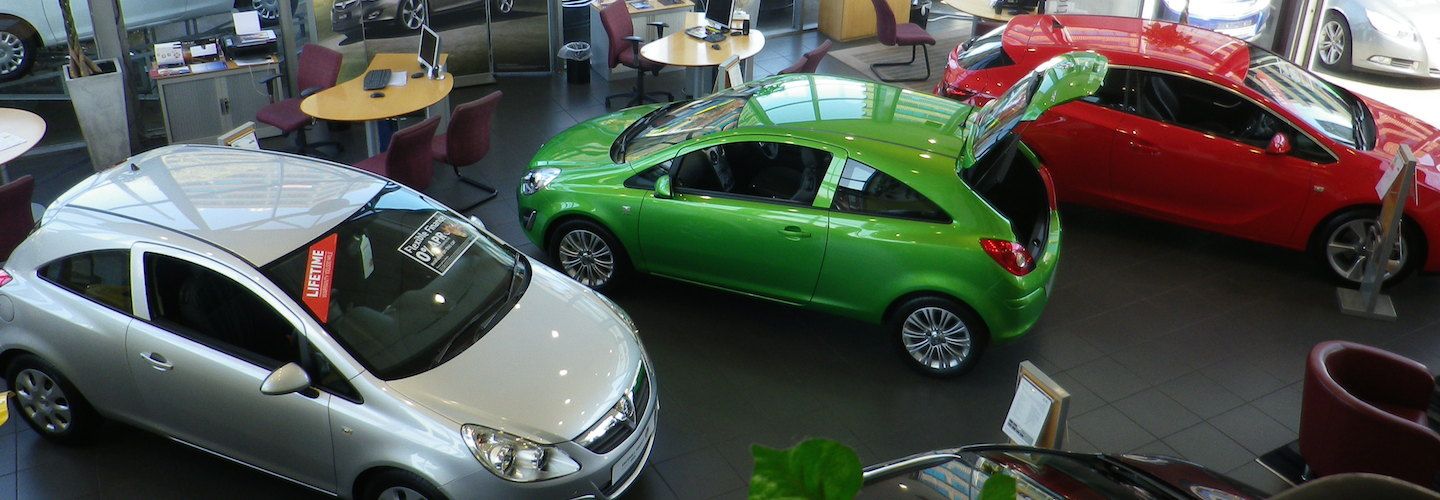What are the disadvantages of a Personal Contract Purchase?
When you’re sitting in a shiny new car showroom, the sales executive will charm you with all the ways that a PCP will improve your life (because they want your money). But they don’t usually dwell on the negative aspects of why a PCP, and those negative factors can be pretty significant – especially if things don’t work out so well or your circumstances change over the next three or four years.
The real reason that car dealers and car manufacturers push PCP finance so hard is that it’s generally good news for them. It may or may not be suitable for you, but they don’t really care about that. They’re just desperate to make you think that it’s good for you.
So here are the things you really need to consider before signing that PCP contract:
- You get locked into an endless PCP cycle
- It’s really difficult to get out early
- The terms and conditions are restrictive
- You can’t sell the car to repay your debt
You get locked into an endless PCP cycle
A personal contract purchase is not great if you want to keep your car at the end of the agreement, as you will have to pay a large chunk of money to settle the rest of the finance (the balloon amount).
Statistically, there’s about a 90% chance you won’t have enough cash available to pay off your balloon amount at the end of your agreement to keep your car, so you’d have to borrow more money to pay off the balloon.
If you don’t have the cash and you don’t want to borrow more money to keep your car, that means you are pretty much having to change your car at the end of the term and take out another PCP, even if that’s not especially convenient for you at the time.
It’s really difficult to get out early
A personal contract purchase is not great if you want or need to change your car early (see below), as your monthly repayments are not enough to cover both the car’s initial rate of depreciation and the interest on the loan. As a result, you’re likely to owe a lot more than your car is worth for the majority of your PCP term.
That means you will probably have to pay a lot of money (often thousands of pounds) just to get rid of your current car, before you even start to worry about paying for your next car.
The terms and conditions are restrictive
If you want to claim the Guaranteed Future Value (GFV) and return the car at the end of your agreement, you must have complied with the mileage allowance. The car must also have been fully serviced – on time, every time – usually by a franchised dealership (not an independent garage). Finally, you must return the car in good condition, as you’ll have to pay a lot of money for any damage beyond normal wear and tear.
Because the car belongs to the finance company, you can’t change the registration details (for example, transfer the car from your name into your spouse’s name) and the person borrowing the money must be the registered keeper and main driver.
The car must be kept fully comprehensively insured at all times, with the finance disclosed to the insurer, and the insurance must also be in your name as the registered keeper, so you can’t have the car registered in someone else’s name or at a different address.
None of these restrictions are necessarily a problem, but the combination of all of them very much limits what you can do with your car.
You can’t sell the car to repay your debt

A personal contract purchase is a form of secured finance, meaning the money borrowed is secured against the vehicle (unlike a personal loan, which is unsecured).
If you want to sell the car yourself, rather than part-exchanging it or giving it back to the finance company, it can be tricky because it’s not actually your car to sell. Some finance companies will have specific requirements about how you go about selling the vehicle and settling your debt, while others will simply refuse to allow it at all.
Is a PCP right for me?
Broadly speaking, if you are likely to change your car in a few years’ time, then a personal contract purchase can be a cost-effective way to finance it. If you are going to keep it for longer than that, then you may well be better off with a hire purchase and pay the car off in larger equal instalments instead of a few years of lower payments then a big hit at the end.
A PCP works best if it runs its full course. If you are expecting your circumstances to remain pretty stable over the next few years and you have no real concerns about making your monthly payments for the entire duration of the agreement, a PCP may well be suitable.
However, if your life circumstances change (job, family, marriage, divorce, relocation, etc.) and you need to get out of your agreement, a PCP can be a very expensive problem to have to deal with.
You need to make sure you properly understand any finance agreement before you sign up for it. Be aware of exactly how much you are paying in interest and fees, and make sure you are not over-stretching yourself.
Read the finance documents carefully and make sure you are comfortable with the numbers offered. Ask as many questions you like before you agree to anything, to make sure you understand the full implications of the agreement. It is better to feel silly before you sign up than feel very stupid afterwards!
More PCP car finance information
Disclaimer
Most car finance agreements in the UK are regulated by the Financial Conduct Authority, and anyone involved in the selling of car finance must be accredited by the FCA.
You should always consider the terms and conditions of any agreement carefully before taking out any form of car finance, as you are making a substantial ongoing commitment and there may be significant costs if you change your mind or are unable to meet your commitments at a later date.
This article was first published in 2013 and is continually updated based on reader feedback and questions. Latest update: September 2022.













